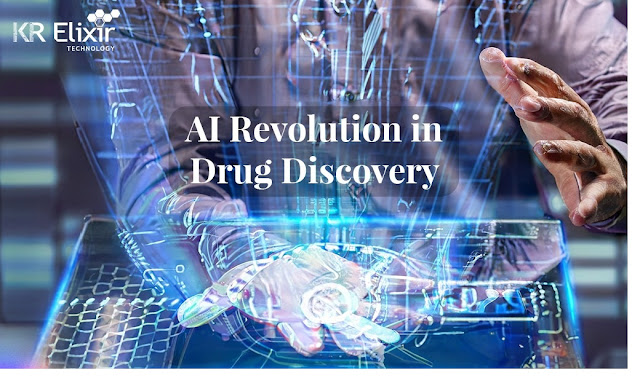Artificial intelligence (AI) is rapidly transforming various industries, and one area where its impact is particularly profound is drug discovery. This article examines how artificial intelligence is revolutionizing drug discovery processes, from target identification to clinical trials, and explores its implications for the healthcare sector.
Introduction to Artificial Intelligence in Drug Discovery
In recent years, artificial intelligence has become a powerful tool in drug discovery, offering innovative solutions to long-standing problems. Through the use of machine learning algorithms and predictive analytics, artificial intelligence enables researchers to analyze vast amounts of biological data with unprecedented speed and accuracy.
Traditional methods of drug discovery
Traditional drug discovery methods are often characterized by lengthy and costly processes. Researchers rely on trial-and-error approaches that can take years to obtain viable drug candidates. Moreover, these methods are limited by the complexity of biological systems and the sheer volume of data.
The role of AI in revolutionizing drug discovery
AI-driven approaches have revolutionized drug discovery by automating various stages of the process. Machine learning algorithms can analyze complex data sets to identify potential drug targets, predict compound efficacy, and optimize drug development pathways.
Application of artificial intelligence in drug discovery
Artificial intelligence is used throughout the drug discovery process, from target identification to clinical trials. It facilitates the screening of large libraries of compounds, accelerates the process of lead optimization and enables the repurposing of existing drugs for new indications.
Artificial intelligence driven drug development process
Data plays a central role in the development of AI-driven medicines. By collecting and analyzing different data sets, researchers can train machine learning models to predict biological activity, identify drug interactions, and optimize treatment regimens through iterative modeling.
The benefits of artificial intelligence in drug discovery
Integrating AI into drug discovery processes offers several benefits. It enables faster and more cost-effective drug development, reduces the risk of failure in clinical trials and ultimately improves patient outcomes by accelerating the delivery of innovative therapies.
Challenges and ethical considerations
Despite its potential, AI is not without challenges in drug discovery. Concerns about data privacy, algorithmic bias, and regulatory compliance need to be addressed to ensure the responsible use of AI technologies in healthcare.
Success stories in AI-powered drug discovery
Several success stories illustrate the transformative impact of artificial intelligence on drug discovery. From identifying new drug targets to repurposing existing drugs for new indications, AI-based approaches have led to breakthroughs in fields such as oncology, neurology and infectious disease.
The future of artificial intelligence in drug discovery
Looking ahead, AI is poised to play an increasingly significant role in drug discovery. Advances in artificial intelligence technologies, along with greater collaboration among industry stakeholders, are expected to drive further innovation and efficiency in drug development processes.
Conclusion
In conclusion, the AI revolution in drug discovery represents a paradigm shift in the healthcare industry. By harnessing the power of artificial intelligence, researchers can accelerate the discovery and development of new therapies, paving the way for better patient care and medical innovation.
Frequently asked questions
What types of AI algorithms are commonly used in drug discovery?
Machine learning algorithms such as neural networks and random forests are commonly used in drug discovery to analyze large data sets and predict molecular interactions.
How is AI accelerating the drug development process?
Artificial intelligence allows researchers to automate labor-intensive tasks such as compound screening and lead optimization, reducing the time and cost associated with drug development.
What are some ethical considerations in AI-guided drug discovery?
Ethical considerations in AI-guided drug discovery include data privacy concerns, algorithmic bias, and equitable distribution of healthcare resources.
What regulatory guidelines govern the use of AI in drug discovery?
Regulatory agencies such as the FDA provide guidelines and standards for the development and deployment of AI applications in drug discovery to ensure patient safety and efficacy.
How can companies mitigate the risks associated with AI in drug discovery?
Companies can mitigate the risks associated with AI in drug discovery by promoting transparency in algorithmic decision-making, implementing robust data governance frameworks, and complying with regulatory requirements.




.jpg)






0 Comments